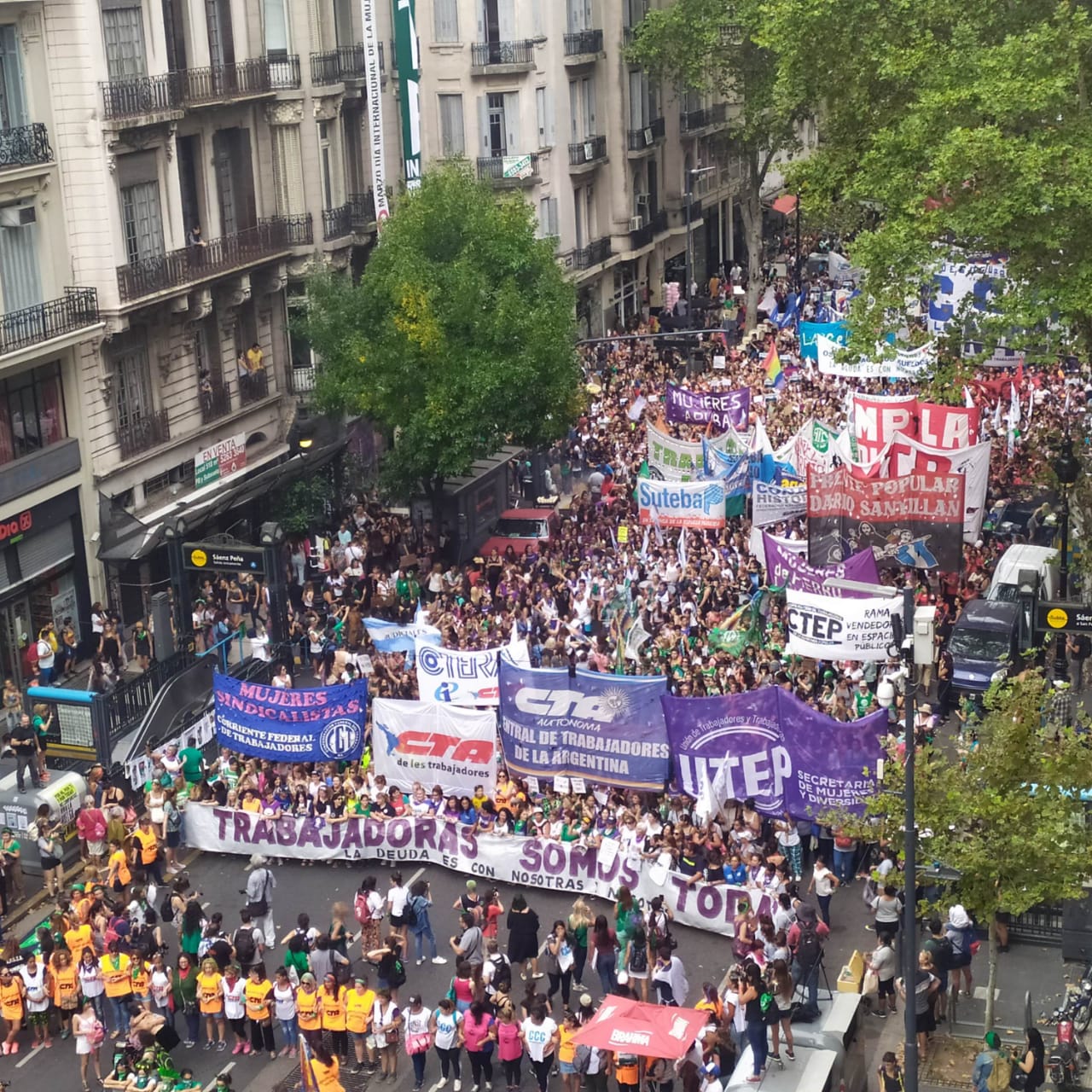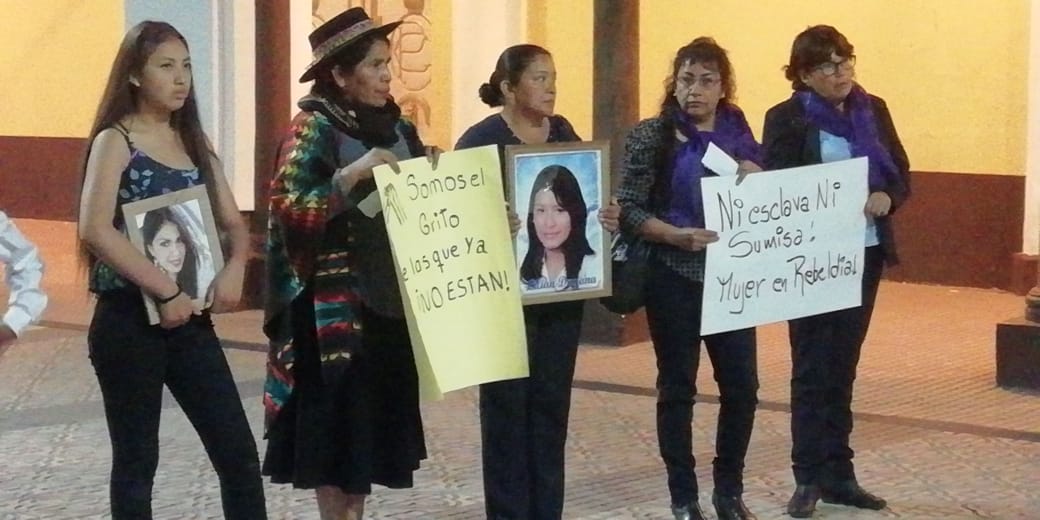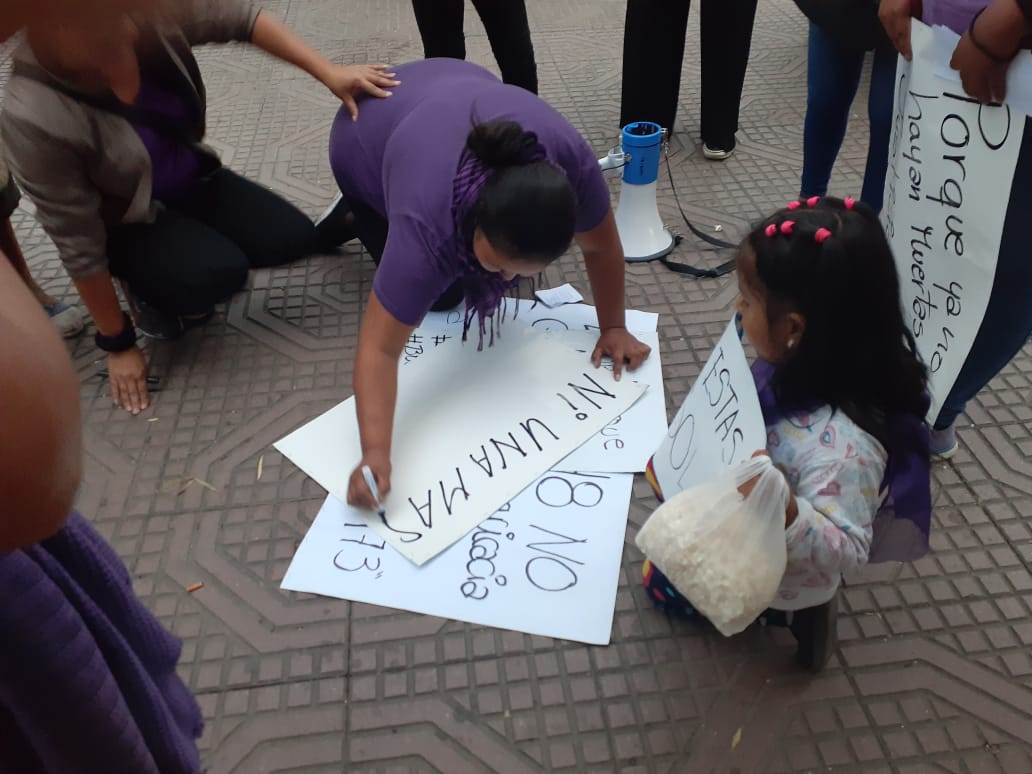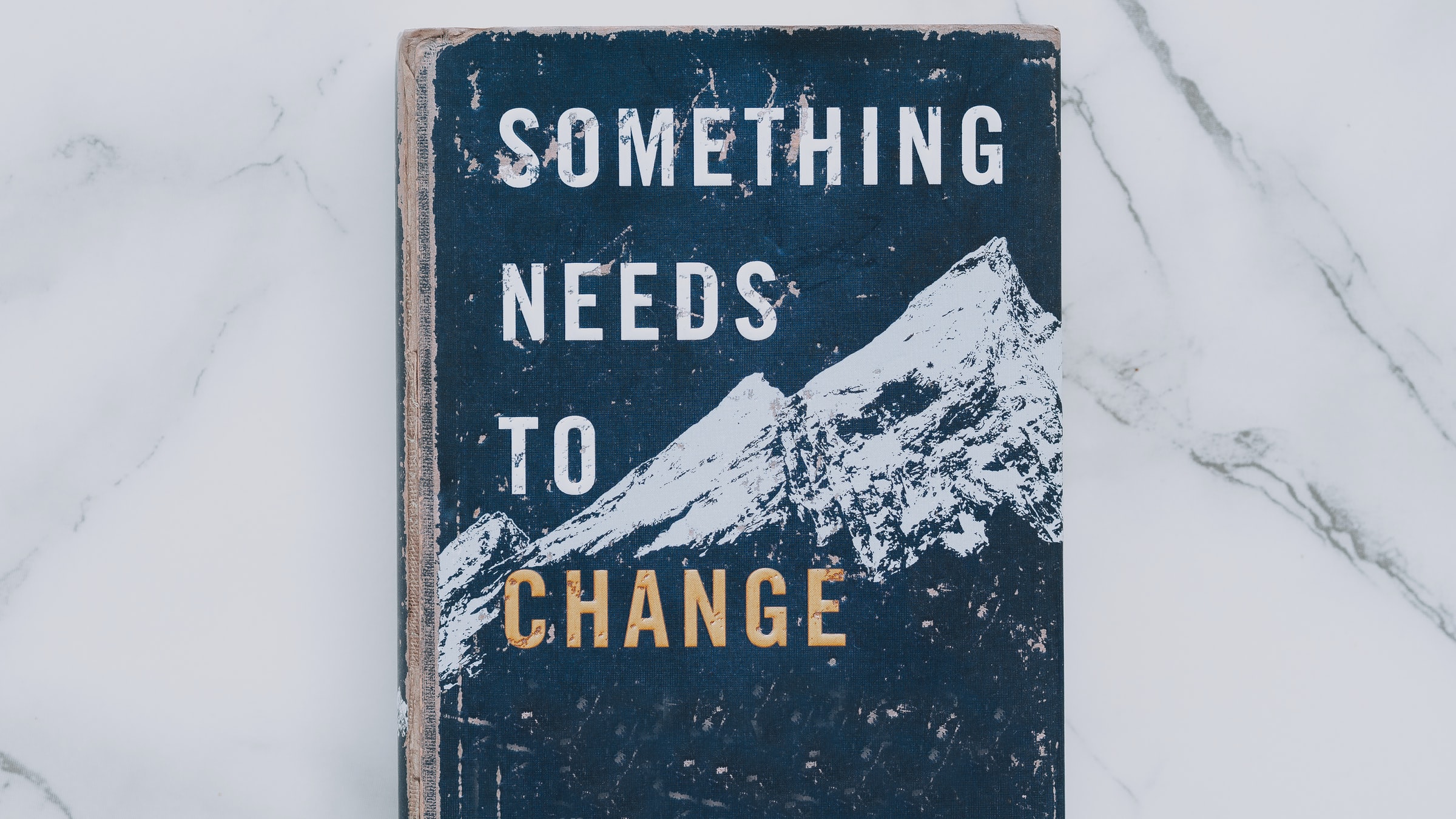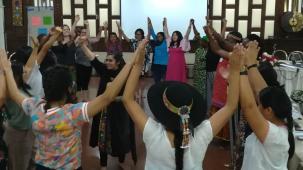On International Women’s Day 2020, from the Philippines, India, Fiji, Nepal, United Kingdom, Mexico, Argentina, Ecuador to Paraguay, over one million women in all their diversities, from 60 countries went on a Women’s Global Strike to highlight the injustices women continue to face and demand structural change to advance women’s human rights. Today, as the world prepares for and responds to COVID-19 pandemic, the political demands articulated collectively by the Women’s Global Strike for a systemic change matter more than ever: COVID-19 is not gender neutral, and the pandemic is hitting disproportionally women around the world, especially those from poor and marginalized communities that experience intersectional discrimination.
ESCR-Net members worldwide engaged in shaping the political statement of the strike: “We want alternative development models that center people and planet, uphold human rights, food sovereignty and climate justice. We want decent work and living wages for all women. We want unpaid care work to be fairly recognized, reduced and redistributed. We want gender-based violence to end. We want corporate abuse to stop. We demand just access to resources, power, and opportunities. We demand that our voices be heard, heeded and protected. We want systemic change, and we want it now.”
The coordinated strikes were a reminder that 25 years after governments got together to adopt the Beijing Declaration and Platform for Action for women’s rights, these promises have not been kept and structural oppression against women persists.
The coronavirus outbreak might intensify worldwide this economic, political and social oppression, resulting in the domestic violence rise during the lockdown periods and as a result of increasing militarization; the economic hardship for women disproportionately represented in the informal sector and in precarious working conditions; magnifying the gendered division of labor and unpaid and paid care work, who tend to be women and are currently on the front line of the pandemic. The pandemic doesn’t discriminate, but intersecting systems of oppression do. Women facing multiple and intersecting discrimination, exclusion and violence are the most affected.
The strike connected a diverse range of struggles around women’s economic, social and cultural rights: women trade unionists, indigenous, peasant, fisherfolk communities defending their lands, activists promoting climate justice, and many other women worldwide mobilized.



